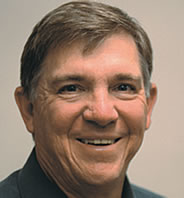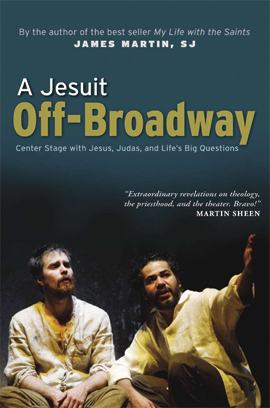
Monday, October 27, 2008
What if you could spend one more day with a lost loved one?

Thursday, October 16, 2008
Peter Kreeft passes pearls of wisdom to next generation

"before i go,"
by Peter Kreeft
Oft-quoted in Catholic circles, Boston College prof Peter Kreeft has compiled 162 -- what, statements? pearls of wisdom? life's lessons? -- in a tiny-yet-thick Sheed & Ward book subtitled, "Letters to Our Children about What Really Matters."
I can say there area 162 of them -- whatever you want to call them -- because each is numbered.
Few are longer than one page. Most are just a paragraph or three or four.
And the book's concept is excellent. How many of us have had that thought that we'd like to get down on paper things we'd like our children to know?
Not 162 great thoughts
I usually love this kind of work, because I can pick it up and read for just the bit of time I might have at that moment and grab a great thought to wrestle with. There are a number of those great thoughts in "before i go," but there aren't 162.
And, after hitting a few too many trite ideas among those numbers, I came close to crossing out a few and doing a recount.
I mean, "Stop and smell the roses?" Bet that didn't take too long to come up with.
"Each day is a gift from God?" I think Sister Jude covered that pretty well in the first grade in 1957.
Tossing out the banal bunch and eliminating some of the really dumb statements would make Kreeft's work very valuable for personal reflection. The man has a knack for putting ideas in concise, memorable sentences. It's a real gift. Here are just a few examples:
"It's better to be happy than to be right."
"Be good, but be you."
"All life is liturgy. All words are creeds. All times are Sabbaths. All places are churches."
Advice worth sharing
And there is great advice, too.
Instead of complaining about how busy you are, simplify reasons for doing anything to three things: because it's morally good, because its a practical necessity, or because it makes you happy.
Take seven minutes each day to thank God for seven specific things.
"Forgive everyone. Forgive everything. Forgive always. Forgive everywhere."
Kreeft gives readers a really good explanation of grace, has a great message on how to respond when we fail -- and we all do and will -- and this wonderful take on the Beatitudes:
However...
The world isn't black and white
At times I found Kreeft to be polarizing and divisive. My world just isn't as black and white as Kreeft's, and I sure don't have all the answers, as Kreeft's writing implies he does.
Although he writes the self-righteous prose of an expert, he takes a cheap shot by demonizing "experts," for example. And in some of his thoughts he comes off as a prig, making unproven generalizations such as, "they don't teach the lives of the saints in religion classes anymore."
That's pure B.S., and just the kind of false statements that get repeated and repeated until zealots believe them to be true. That's one statement Kreeft should be ashamed of making.
I like the technique of making lists, to a point, but the list thing gets old after a while. Sometimes, too, others did it better years ago. Take his 10 points of "What is 'A Good Person?'" The Boy Scouts nailed that concept in their 12-point creed -- trustworthy, loyal, helpful, friendly, courteous, kind, obedient, cheerful, thrifty, brave, clean and reverent-- a list that sounds suspiciously like Kreeft's 10 thoughts.
It boils down, though, to you gotta take the bad with the good.
You go from No. 105 where the bad Kreeft is saying something as dumb as God is a comedian because he invented dog farts, to the very next page where he suggests we practice everyday what you do and don't want so say and do on the last day of your life.
Dog farts? I expect better than that. But I forgive him. -- bz
Monday, October 6, 2008
If God hired an ad agency...

by Steffan Postaer
"People are not responding to the message anymore," God tells an angel named David. The old stuff -- burning bushes, parting waters, changing water into wine -- aren't working anymore. God's looking for a new and different approach.
"In order to inspire goodness we've got to improve our image," God says. "We need better copy!"
Her answer (yes, God is a she in this novel): Hire an advertising agency.
With that as a great jumping off point for the plot, author Steffan Postaer mines his knowledge of the ad biz to create a fairly interesting story with characters that readers will care about.
That is, if readers can get past the soft-porn.
David the angel gets sent down to earth to find an ad agency to "market heaven," bumps into a beautiful woman and has sex with her the very first evening. (Is this really the way "dating" happens today? Is it art reflecting life, or does art justify -- give permission to -- dismissal of the virtuous life?)
And although the sex is admittedly an element of the plot, the scene does get pornographic. As do other scenes later on. They're unnecessary and offensive. Some, too, will be offended by the language. I'm sure the crude language does reflect reality, though, and it shouldn't be a deal breaker.
What just happen here?
What is a deal breaker, though, is that Postaer develops a handful of characters, gets us involved with them, works them into the plot and subplots, and then you find yourself asking, hey, what just happened there?
The ad exec with the overactive libido suddenly gets transformed into a caring, sensitive male. His ex-wife turns from witch to a do-gooder. The creative genius at the ad agency goes from workaholic to father-of-the-year.
But we never find out why. And Postaer never quite brings all the subplot elements together. Still, he does a pretty good job of leading us to what looks like it'll be an engaging final scene.
I won't ruin the ending for you, but the Greeks who invented "deus ex machina" have nothing on Steffan Postaer.
Greek tragedies aside, "The Happy Soul Industry" has worthwhile lessons to share about life and faith and virtue and marketing -- if you choose to get past the offensive passages. And Postaer, a successful ad copywriter who runs Euro RSCG Chicago now, has a thought-provoking idea for an ad campaign to promote goodness to the American people. Think this would work? Picture billboards at bus stops and train platforms with messages like:
The insider peek into the advertising world is worked in creatively, and Postaer has a great touch with humor. It's good writing and good reading. The pity is that this could have been a really good novel with just a bit more work on the ending and a tad less bowing to the convention that sex sells. But I guess we know where that comes from. -- bz


